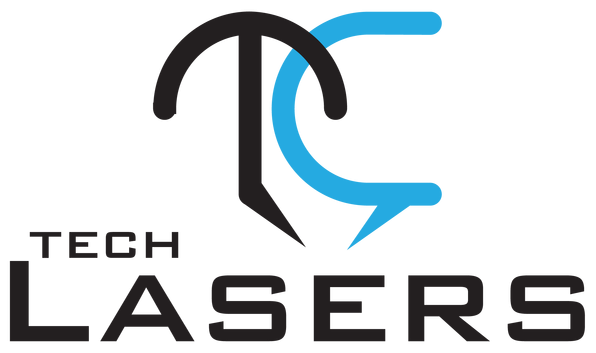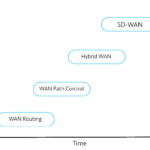In the fast-evolving business world, automation’s role has transcended traditional mechanics, morphing into something profoundly intelligent. This advancement isn’t just a fleeting trend; it’s becoming indispensable for enterprises aspiring to enhance productivity and maintain competitive edges. The unfolding narrative of AI’s potential reshapes the business landscape by enabling companies to optimize processes in unprecedented ways.
The influence of intelligent automation is palpable across various sectors. From reinventing operational workflows to enriching customer service experiences, AI-driven solutions have transformed mundane tasks into sophisticated processes. Businesses that leverage these innovations are reporting increased efficiency and improved morale among employees who are empowered to focus on more meaningful, strategic work. As more companies recognize the dividends of AI, there’s a palpable shift towards integrating these technologies to foster a culture of innovation and resilience, ensuring agility in an ever-changing market dynamic.
What is Intelligent Automation?
Intelligent automation is often perceived as the zenith of technological advancement in automation. At its core, it amalgamates the robust capabilities of artificial intelligence (AI) and machine learning (ML) with traditional automation paradigms. This fusion results in systems that execute repetitive tasks and learn, adapt, and make decisions. Unlike conventional automation, which functions strictly within predefined parameters, intelligent automation possesses the agility to understand context, enable tailored interactions, and minimize the dependency on human oversight. Powered by cutting-edge technologies, intelligent automation, mainly facilitated by AI enterprise software, is heralding a new era of operational efficiency.
Businesses employing intelligent automation enjoy flexibility and scalability, a significant deviation from rigid rule-based systems. Incorporating AI introduces an element of learning, where the system continuously refines its processes based on historical data and context, leading to more accurate and efficient operations. This adaptability drives businesses to rethink how they deploy resources and manage processes, pushing the boundaries of what’s possible.
Benefits of Integrating AI in Business Operations
The appeal of integrating AI into business operations lies in the multitude of benefits it heralds. Businesses witness a substantial increase in efficiency and a notable reduction in operational costs. By automating repetitive and time-consuming tasks, companies free their human resources for strategic roles that foster innovation and growth. This redirection not only aids in cost-saving but also enhances the qualitative aspects of workforce engagement, leading to a more motivated and satisfied employee base.
Intelligent automation revolutionizes decision-making processes, allowing businesses to leverage AI’s analytical prowess in processing vast datasets quickly and accurately. This capability ensures decision-makers can access actionable insights, enabling informed and timely business strategies. Additionally, the customer experience reaps significant benefits from AI’s integration. Automated systems can precisely handle customer interactions, offering personalized solutions and swift service delivery. As businesses tap into these advantages, the competitive landscape transforms. Explore further benefits here.
Real-world Applications of Intelligent Automation
Intelligent automation finds diverse and impactful applications across industries. In healthcare, AI-driven solutions enhance diagnostic accuracy by analyzing medical records and imaging with unparalleled efficiency, thus reducing human error. Financial sectors utilize intelligent automation for complex tasks such as risk assessment, fraud detection, and regulatory compliance, significantly improving the speed and accuracy of these processes.
AI optimizes operations from the production line to supply chain management in manufacturing. Predictive maintenance, enabled by intelligent sensors and AI analytics, ensures streamlined operations and reduced downtime, directly impacting productivity and cost-effectiveness. These applications illustrate the potential of AI to improve operational efficiencies and drive innovation and responsiveness to market demands. The automotive industry, for example, uses AI to enhance vehicle manufacturing processes and design, which has led to the production of more intelligent, safer vehicles.
Overcoming Challenges in AI Implementation
Despite the profound benefits, the road to AI implementation is fraught with challenges. Businesses grapple with data privacy concerns, integration complexities, and the hurdle of upskilling employees to work alongside AI technologies. Data security remains a paramount concern as companies need to safeguard vast amounts of sensitive information handled by AI systems.
To navigate these challenges, companies adopt strategic approaches such as phased implementation, which allows gradual testing and adaptation of AI systems. Continuous learning and development programs help prepare the workforce to interact efficiently with AI. Moreover, collaboration with AI experts facilitates a smoother transition to intelligent automation. Learn more about strategies to overcome AI challenges.
The Future of Intelligent Automation in Business
The future trajectory of intelligent automation is a landscape rich with possibilities. As technological advancements continue unabated, businesses are poised to benefit from increasingly sophisticated AI capabilities. The incorporation of predictive analytics, augmented with natural language processing and refined robotic process automation (RPA), promises to redefine operational paradigms and business models.
Businesses looking to leverage these advancements must cultivate a proactive stance toward innovation. This involves investing in cutting-edge technology and fostering a culture that embraces change and encourages agility. Keeping abreast of emerging trends will ensure businesses remain competitive and responsive to the dynamic and evolving market environment. Companies are increasingly forming strategic partnerships and investing in continual research and development to harness the full potential of these emerging technologies.
Key Takeaways and Actionable Insights
The rise of intelligent automation is a transformative force in global business operations. Key takeaways include enhanced efficiency, data-driven decision-making, and superior customer interactions. Businesses contemplating AI integration can take actionable steps by implementing phased strategies, addressing potential challenges head-on, and preparing comprehensively for a future where agility and adaptability are crucial.
Final Thoughts
The transformative potential of intelligent automation, fueled by AI, is monumental for businesses aiming to excel in the modern landscape. By embracing these technologies, organizations can unlock unprecedented levels of productivity and innovation, ensuring they remain at the forefront of industrial advancements and poised for sustained success. Embracing intelligent automation is not just about staying in the race; it’s about setting the pace and leading the charge into a more thoughtful, automated era where the potential is limitless.

 Why Your Link Building Efforts Might Fail
Why Your Link Building Efforts Might Fail  How to Request or Give Remote Control in a FaceTime Call on iPhone
How to Request or Give Remote Control in a FaceTime Call on iPhone  The Rise of Intelligent Automation in Business Operations
The Rise of Intelligent Automation in Business Operations  The Best Ideas for Designing Your Custom Printed Ring Binder
The Best Ideas for Designing Your Custom Printed Ring Binder  How Technology is Changing the Way We Play Hearts
How Technology is Changing the Way We Play Hearts  The Rise of Open Source: A Journey to Innovation and Collaboration
The Rise of Open Source: A Journey to Innovation and Collaboration  How SD-WAN Is Revolutionizing Business Networks
How SD-WAN Is Revolutionizing Business Networks  Effective Digital Advertising Strategies for Modern Businesses
Effective Digital Advertising Strategies for Modern Businesses  Tips for Marketing Dental Packages: Easy Ways to Grow Your Reach
Tips for Marketing Dental Packages: Easy Ways to Grow Your Reach 